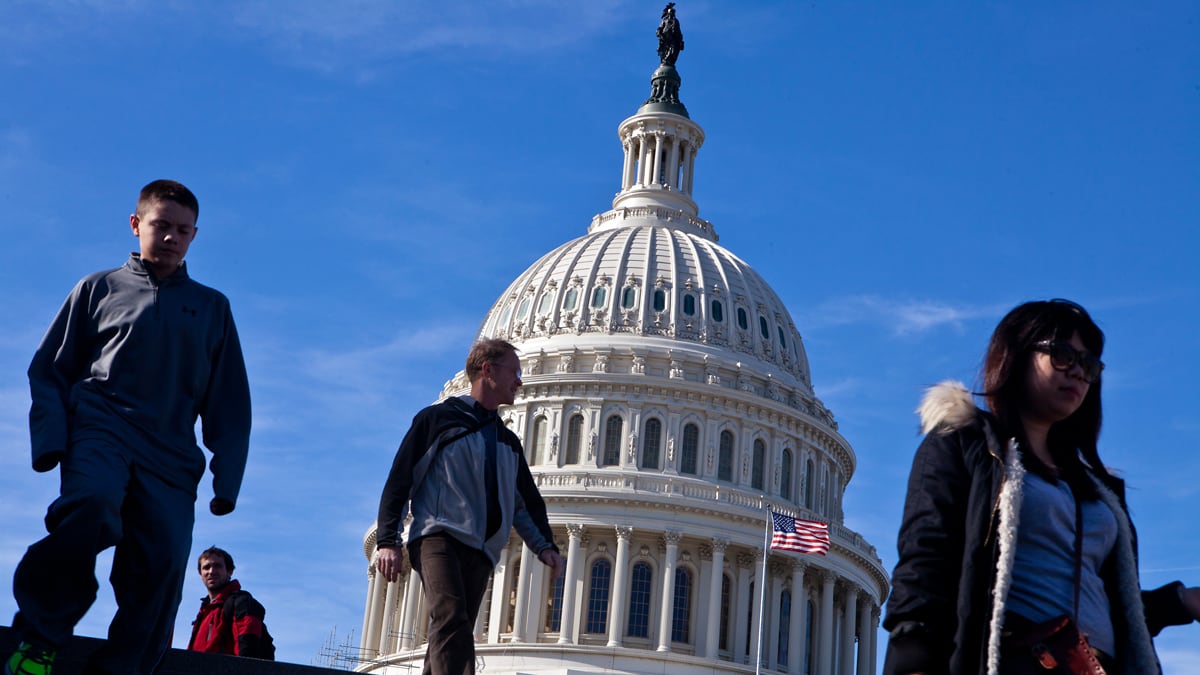Cynicism passes for wisdom in Washington for a reason.
With the hours counting down before a November 23 deadline, the so-called supercommittee seems either unable or unwilling to make a deal that would reduce our debt by $1.2 trillion over 10 years.
That’s despite the delegated power to propose a plan that would receive an up-or-down vote. They’re functionally ignoring the fact that 150 of their congressional colleagues are urging them to go big and tackle $4 trillion in debt reduction needed to put our nation on a stable long-term fiscal foundation. They have the support, the opportunity, and urgency.
But pervasive hyperpartisan positional bargaining seems to have carried the day. Pessimism has clouded late-inning negotiations. Supercommittee Democrats have offered to put entitlement reforms on the table, but offered few specifics. Republicans have offered limited revenue increases, but tied those to the cutting the top tax rate to 28 percent from 35 percent and permanently extending the contentious Bush tax cuts. Distrust and brinksmanship pollutes the process.
Ironically, but perhaps appropriately, the dysfunctional debate seems to be based around what the term “fair and balanced” actually means.
For Democrats it means a 1-to-1 ratio of tax hikes to spending cuts. For bipartisan groups like the Gang of Six and Bowles Simpson, it means a 3-to-1 ratio. But for too many Republicans, “fair and balanced” means no tax revenues raised at all—a handful of loopholes closed as concessions, like $3 billion from private jets, and the rest collected from spending cuts. The basic dynamic of both sides being willing to slaughter sacred cows is missing despite an avalanche of "more bipartisan than thou" press releases.
The core problem comes from antitax pledges that have dislodged the basic nature of balance sheets in the collective conservative mind—it is all spending, no revenue. Fiscal responsibility has been replaced by fiscal conservatism. Reducing the deficits and debts is no longer the overriding goal, despite Tea Party rhetoric about generational theft or even the balanced-budget-amendment attempt this past week. Instead, keeping tax cuts in place is the one true grail—ignoring the overwhelming popularity of provisions like raising the top rate on people making more than a million dollars a year.
Here’s what’s crazy: the necessary path is well known. We have the Bowles-Simpson Commission, the Rivlin-Domenici Commission, the Gang of Six plans to look to and learn from. The smartest path in retrospect would have been to begin with one of those largely overlapping plans and adjust from their baseline. All those plans presented spending cuts and revenue raises, entitlement reform and tax reform.
It’s actually easier to go big in this context because when $4 trillion is the goal everybody has to make significant concessions. Once sliding across the goal line with $1.2 trillion becomes the objective, the lobbyists descend with predatory force looking for their respective exemptions. And we will all be back at the table in a few months time.
Perhaps the Supercommittee was always set up for failure. After all, party leaders did not appoint a single member of the Gang of Six to their ranks, and the other members of the Bowles-Simpson Commission that were appointed—Co-chairman Rep. Jeb Hensarling and Sen. Max Baucus—voted against its recommendations. They foolishly thought a better deal would emerge down the road.
Now you’re hearing the same kind of cynical and self-defeating logic from hyperpartisan strategists on both sides who argue that no deal could actually be politically beneficial—allowing Republicans to keep their antitax purity while Democrats can campaign as the defenders of Social Security and Medicare. These voices peddle the fantasy that after the 2012 election—and their side presumably wins—that the nation will be liberated and a golden age of reason will emerge from necessity.
This is the logic of a political crack addict, always begging for just one more election fix to make everything alright. That’s why it's time for an intervention—a confrontational wake-up call from friends and colleagues on both sides of the aisle, because this is rock bottom. The opportunity for real change is right now.
We cannot kick the can down the road anymore. Further downgrades loom, Europe’s fiscal crisis will turn to contagion, and our fragile recovery will be derailed. Most important is this stark reality: the world’s largest debtor nation cannot remain the world’s sole superpower indefinitely.
These are the stakes. But where there is time there is hope. The atmosphere of “partisan brinksmanship” that the S&P and Ben Bernanke both decried unfortunately means that congressional negotiators cannot stop themselves from peddling to the edge of the cliff. Deals get done in desperation at the last moment.
Now is the time. Everybody who ever claimed to care about fiscal responsibility or generational theft has got to get into the intervention action. Call or email the members of the supercommittee—tell them to get a deal done that gets us to at least $1.2 trillion and ideally going even bigger, which means real revenue concessions by Republicans and binding entitlement reforms by Democrats. The supercommittee can still be heroic and save our country from another round of downgrades—or it will become the latest symbol of congressional incompetence. The choice is theirs to make.





